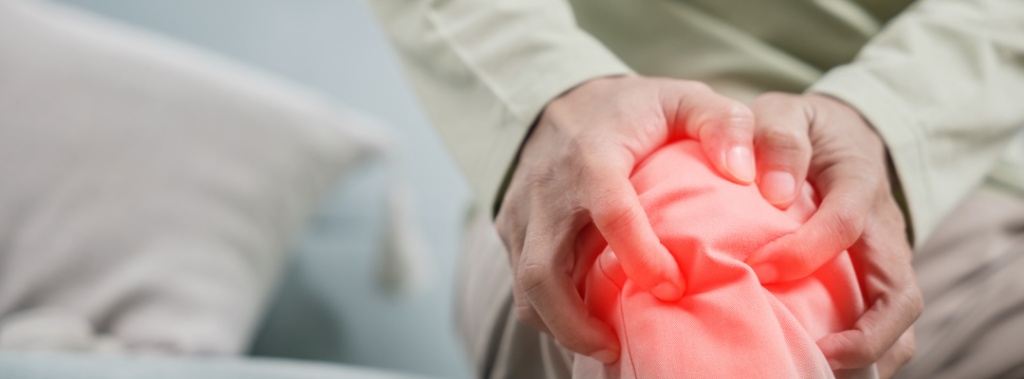How to Treat Knee Pain
Your knees are some of the most hard-working parts of your body. They need to be strong enough to support the whole weight of your body, to bend, to stretch, to jump and climb stairs. It’s no wonder that knee pain is one of the most common complaints that GPs hear.
Knee pain can have a range of different causes, and they all require different treatments. It’s important not to try and self-diagnose knee pain, as some knee conditions can cause long-term damage if they’re not treated properly.
Physiotherapy is commonly and effectively used for certain knee conditions, with a view to strengthening the structures that support the knee joint. However, as some joint and bone disorders can be worsened by some forms of exercise, it’s best to have the cause of your joint pain diagnosed properly before beginning any new exercise plan.
Causes and treatments for knee pain
Knee pain treatment usually depends on the cause:
- Sprains and strains are common causes of knee pain. They might have a clear cause such as an awkward movement during exercise, or they may be caused by overuse. Simple painkillers and rest with gentle movement of the sore joint can help, as can ice packs and compression bandages. If the sprain isn’t starting to get better after a few days or if it is causing serious problems, it’s important to consult a doctor.
- Tendonitis is a common cause of knee pain, especially during or after exercise. Mild cases can be managed in a similar way to sprains, with rest, support, simple painkillers and ice packs.A torn or ruptured tendon or ligament needs to be assessed and treated by a doctor, and treatment may include physiotherapy or possibly surgery to repair the ligaments around a joint.
- A bursa is a fluid-filled sack that sits between the skin and a bony protruberance. If a bursa becomes inflamed, this is called bursitis. It can often be treated with the same methods as a sprain or tendonitis, but if the pain doesn’t improve with simple treatment, the symptoms should be assessed by a doctor as a steroid injection may be required.
- Gout can cause acute (sudden) attacks of severe pain with significant swelling, heat and redness in a joint. An attack of gout should be treated by a doctor as soon as possible – untreated gout can cause long-term joint damage.
- Septic arthritis also causes acute swelling, redness and severe pain and is often accompanied by general feelings of illness. Septic arthritis is caused by an infection in the joint and requires urgent treatment with strong antibiotics and often a washout of the joint to prevent severe lasting damage to the joint and sepsis, a life-threatening condition.
- Osteoarthritis is more common as we age, though it can occur in younger people. It is a condition that worsens gradually over time, often eventually leading to joint replacement surgery.
There are several other causes of knee pain, including many different forms of arthritis and some autoimmune diseases. These can all require different treatments, so consulting an orthopaedic knee specialist is essential. Seeing a specialist means that you can have the right investigations, accurate diagnosis, and effective, timely treatment.
To book an appointment with a orthopaedic knee specialist call us on 020 7079 2100 or email appointments@phoenixhospitalgroup.com



